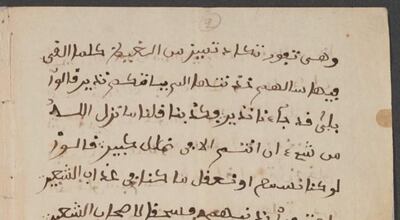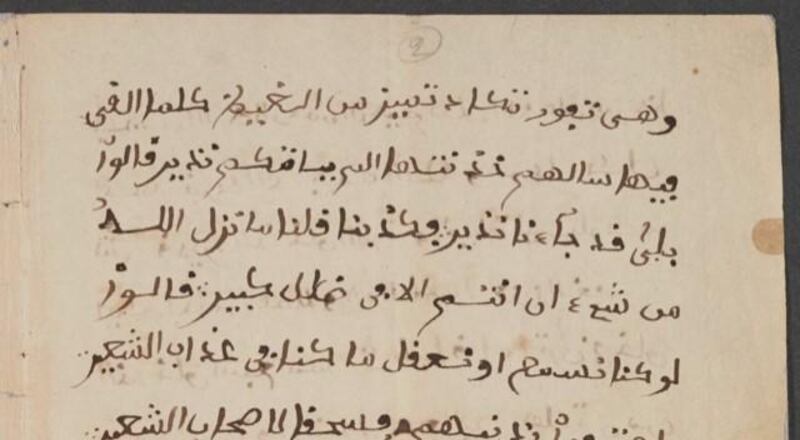The United States Library of Congress is putting online the only known surviving narrative written in Arabic by a slave. The story belongs to Omar Ibn Said, a man who was captured in West Africa and brought to the US as a slave in 1831.
According to the organisation, his writings are the only known extant autobiography of a slave written in Arabic in the US.

“The significance of this lies in the fact that such a biography was not edited by Said's owner, as those of other slaves written in English were, and is therefore more candid and more authentic,” says Mary-Jane Deeb, chief of the African and Middle Eastern Division at the Library of Congress.
“It also reveals that many Africans who were brought to the United States as slaves were followers of Islam, an Abrahamic and monotheistic faith. Such documentation counteracts prior assumptions of African life and culture,” she added.
In his autobiography, Ibn Said describes himself as a wealthy and highly educated man who was eventually sold into slavery. He was also a member of the Fula ethnic group, according to the Library of Congress. The Fula are the largest ethnic group across the Sahel and West Africa, numbering some 40-50 million people today.
As for the condition of the manuscript, some of the pages proved to be weak and vulnerable from being passed around from various owners and libraries.
In an effort to preserve Ibn Said’s words, conservators mended and reinforced fragile pages.
Ibn Said's entire manuscript is now available online through the US Library of Congress website.
In addition to posting the digital copy of his text online, the Library is planning to host a special programme to discuss the significance of Ibn Said’s words to coincide with African American History Month in February.







